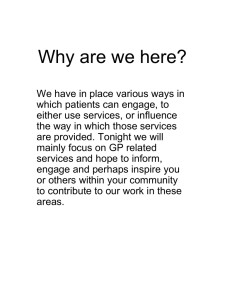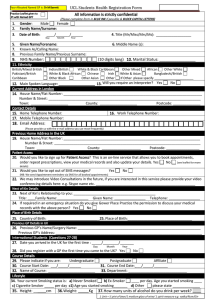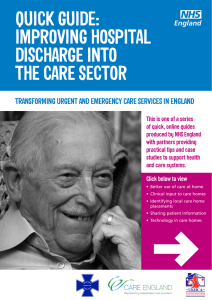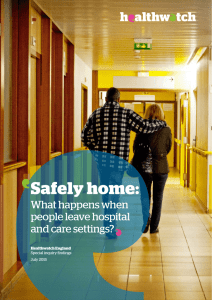Supporting patients’ choices to avoid long hospital stays Easy
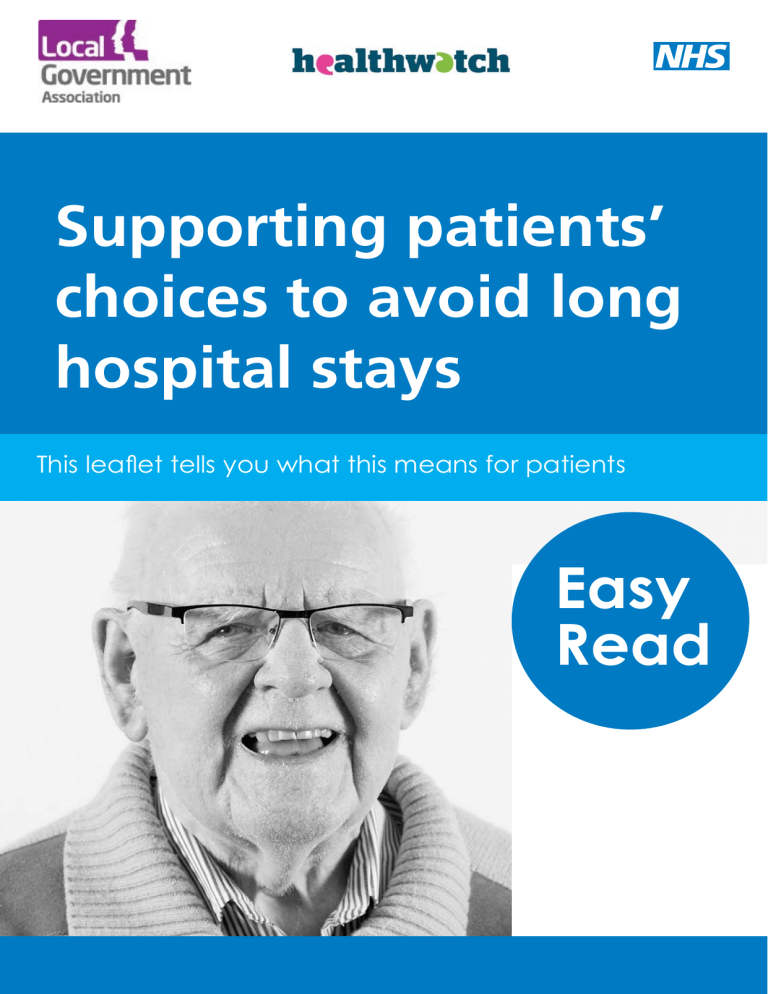
England
Supporting patients’ choices to avoid long hospital stays
PATIENT
Read
Supporting patients’ choices to avoid long hospital stays
This leaflet gives information about what this means for patients.
After being in hospital, most people are able to return home.
Sometimes they need help and care from services and aids or changes made to their home.
However, some people are unable to return home. They need the added support which is only available in a care home.
22
Once people no longer need hospital care, it is best to get home or to another community setting as quickly as possible because:
Nobody wants to stay in hospital any longer than is necessary;
Being at home or in a community setting (such as a care home) is the best place to carry on getting well once an illness needing hospital care is over;
Once people are aged
80 years and over, it’s not good for them to spend too long in bed because their muscles get weak very quickly.
3
Very ill patients may not be able to access services, if hospital beds are full of patients who no longer need them.
What can you expect as a patient?
1.
The same person who will plan to help you leave hospital.
You should be provided with one person, (called a
‘discharge coordinator’) who will support you all through your time at hospital and make sure that things happen when they are supposed to.
2.
You have a right to high quality information and support
Wherever you need to go following hospital, the NHS and local authority will do all that they can to help you. They should give you all the information you need to make the best decision.
4
You should be involved in all decisions about your care and treatment.
You should be told where you can get support, advice and advocacy about making a decision, should you wish this support.
You should be given high quality information to help you make a decision about your ongoing care, including : an understanding of your care needs;
5
how your needs are assessed and what will happen next; offers of care and choices available; costs of any care.
You should be told of and agree to the sharing of your personal,private information with other professionals outside of hospital – you should also know who it will be shared with and why.
6
You have the right to complain at any point if you are not happy with the information and support provided, or with the choices you have been offered.
You should be told by the hospital about how you can complain and your local Healthwatch organisation can also help.
http://www.healthwatch.
co.uk
3.
Timescales for decisions
You should know when your treatment is due to end and when you would be considered well enough to leave hospital (this is called an estimated discharge date) – you should know this within 48 hours of you going into hospital.
7
Once you have this information about the choices that are available to you, we will ask you to make a decision within 7 days.
You may wish to arrange for yourself or a family member to meet with the care providers during this time.
NHS and local authorities want as many people as possible to do this in 7 days but they can make it longer if needed.
4.
Places for care in between hospital and home
Once you are well enough to leave hospital but you are unable to return home, you will be offered another choice for a short time in the following situations:
8
Your preferred choice is not currently available;
You haven’t yet made a decision;
You are waiting for assessments to be carried out;
You are waiting for funding agreements to be made.
9
If you have been offered a short term option it is not possible for people to wait in hospital.
However people do have the right to say no to the place being offered and make a complaint.
You can see the full policy document by clicking on the link below and clicking Policy Template on the webpage: http://www.nhs.uk/NHSEngland/keogh-review/Pages/quick-guides.
aspx
This easy read document has been produced by
CHANGE.
www.changepeople.org
